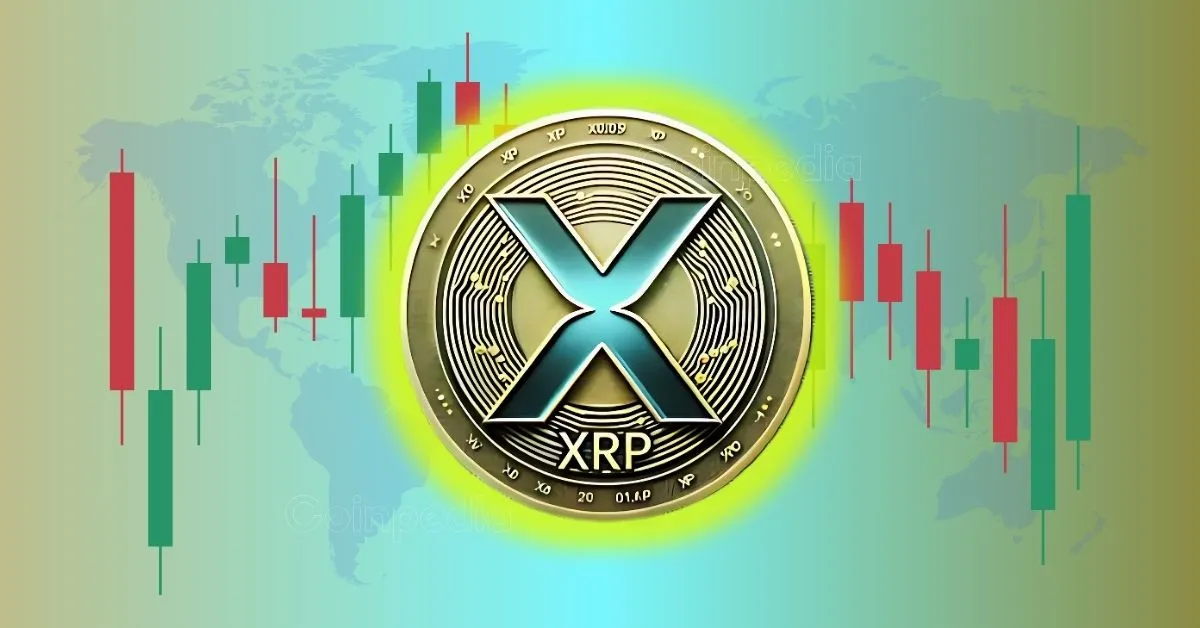 CaryptosHeadlines Media Has Launched Its Native Token CHT.
Airdrop Is Live For Everyone, Claim Instant 5000 CHT Tokens Worth Of $50 USDT.
Join the Airdrop at the official website,
CryptosHeadlinesToken.com
CaryptosHeadlines Media Has Launched Its Native Token CHT.
Airdrop Is Live For Everyone, Claim Instant 5000 CHT Tokens Worth Of $50 USDT.
Join the Airdrop at the official website,
CryptosHeadlinesToken.com
- Trump’s upcoming tariffs could impact crypto markets by influencing investor risk sentiment.
- Bitcoin and Ethereum may face volatility depending on the scope of trade measures.
With less than a week to go before April 2, US President Donald Trump is preparing to impose a new round of reciprocal tariffs, calling the date “Liberation Day” for the US economy.
The move is expected to reshape US trade policy, affecting key international partners and industries. Trump has made no secret of his opinions on trade, stating that tariffs are needed to address what he calls unfair trading practices by other nations.
Reports say the administration is considering a selective approach, targeting the so-called “dirty 15” countries with the worst trade balances with the US.
These measures have the potential to have broader economic ramifications, impacting sectors like steel, aluminum, and automobiles. Trump has also indicated that he will apply secondary tariffs to Venezuela, stating that any country that purchases oil or gas from the South American nation will be hit with a 25% tariff when trading with the US.
While some sectors may be spared from across-the-board tariffs, others remain at risk. The European Union has already announced that it will slap counter-tariffs on $28 billion worth of US goods beginning in April.
However, others, such as the 50% tariff on US whiskey, were postponed until mid-April, which at one time earlier in the past led to Trump’s threats of a 200% tariff on EU spirits.
Meanwhile, China has responded in kind with its own tariffs, imposing up to 15% tariffs on US farm products like pork and chicken.
Aggressive Tariffs Could Pressure Crypto Demand
For the crypto market, the uncertainty of Trump’s tariff policy has become a key driver of investor sentiment. Bitcoin and Ethereum have exhibited volatility in recent weeks, reacting to shifts in risk appetite due to economic policies.
If the administration slaps aggressive tariffs on a number of nations, financial markets could be volatile, prompting investors to flee to safe-haven assets like the US dollar. This could result in less demand for cryptocurrencies on a short-term basis.
Recent history also demonstrates Bitcoin performing poorly in risk-off situations. In February, tough talk on trade from Trump assisted in prompting a sell-off in markets, with Bitcoin dipping below key support levels.

If similar pressure were to build early in April, digital assets may experience another leg of selling pressure. Traders will be monitoring developments closely to determine the potential impact on liquidity and sentiment generally.
However, if Trump assumes a more sensible position, with targeted tariffs rather than blanket policies, market stability can be promoted. A well-defined policy framework can remove uncertainty so that crypto prices can recover.
Earlier this March, even modest indications of flexibility had Bitcoin recovering from local lows. The same outcome could transpire should Trump soften his trade rhetoric.
Auto and Tech Sectors Brace for Potential Tariff Hits
Aside from sweeping trade restrictions, Trump has threatened to impose sectoral tariffs, most recently on automobiles and semiconductor chips. US automakers Ford, General Motors, and Stellantis have already seen their stock prices fluctuate in expectation of potential duties on automobile imports.
Although an earlier reprieve eased concerns, Trump’s latest comments suggest the prospect of auto tariffs being announced sooner rather than later.
The semiconductor industry is also under focus, with Trump proposing tariffs on chips could be on the cards later in the year.
Given the industry’s global supply chain, any restrictions on trade would be disruptive to production and would impact prices. Similarly, the pharmaceutical and lumber industries remain on the administration’s radar screen for future tariff activity.
Treasury Secretary Scott Bessent recently explained that although steel and aluminum tariffs can be piled on top of current rates, not all nations will be subjected to the same measures.
He emphasized that the government is dedicated to addressing unfair trade practices rather than charging across-the-board blanket tariffs.
National Economic Council Director Kevin Hassett also talked along the same lines, suggesting that market concerns about widespread tariffs may be overblown.













